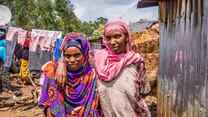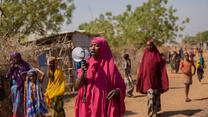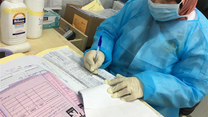The Covid-19 health crisis will not end until it ends for everyone – that includes refugees and other people caught in crisis. Most likely to be left behind by government responses, these populations are traditionally served by humanitarians, but the pandemic and economic crisis shines a light on the limits of this siloed approach. Multilateral development institutions like the World Bank are needed to help ensure both social safety nets and public health responses reach those most likely to be left behind.
The World Bank should be commended for quickly committing $160 billion for Covid-19 responses in low- and middle-income countries. But without concerted efforts to reach those most likely to be left out of the response, there is little hope of ending the outbreak and mitigating its worst impacts.
Refugees, who are typically left out of development plans, are at risk of being left out of national Covid-19 response plans funded by donors like the World Bank. They face unique pre-existing policy barriers to self-reliance and unique vulnerabilities due to their displacement. Meeting their needs requires a different set of tools and an unprecedented level of collaboration between governments and humanitarian and development actors.
This policy brief offers five key actions the World Bank and its shareholders should take so that adequate and appropriate support reaches people caught in crisis, including refugees.



